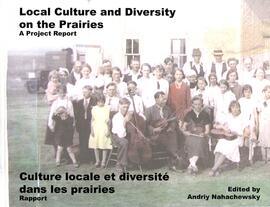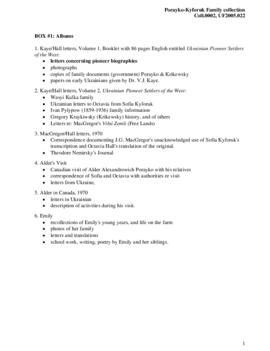The goal of the Local Culture and Diversity on the Prairies project was to document everyday life, ethno-cultural identity and regional variation among people of Ukrainian, French, German and English heritage. How did people from diverse backgrounds interact, adapt and become "prairie Canadians" in the first half of the twentieth century? What was the relationship between cultural inheritance and local community participation? How did they express their various identities on the local community level? The project was designed to generate a great deal of documentary information and primary resources for further research in many aspects of these people's lives.
The collection consists of some 800 hours of audio recordings documenting life in approximately 450 different locations on the Prairies and across Canada prior to 1939, as well as video recordings, photographs, documents, field notes and other material associated with the project.
Kule Folklore Centre
